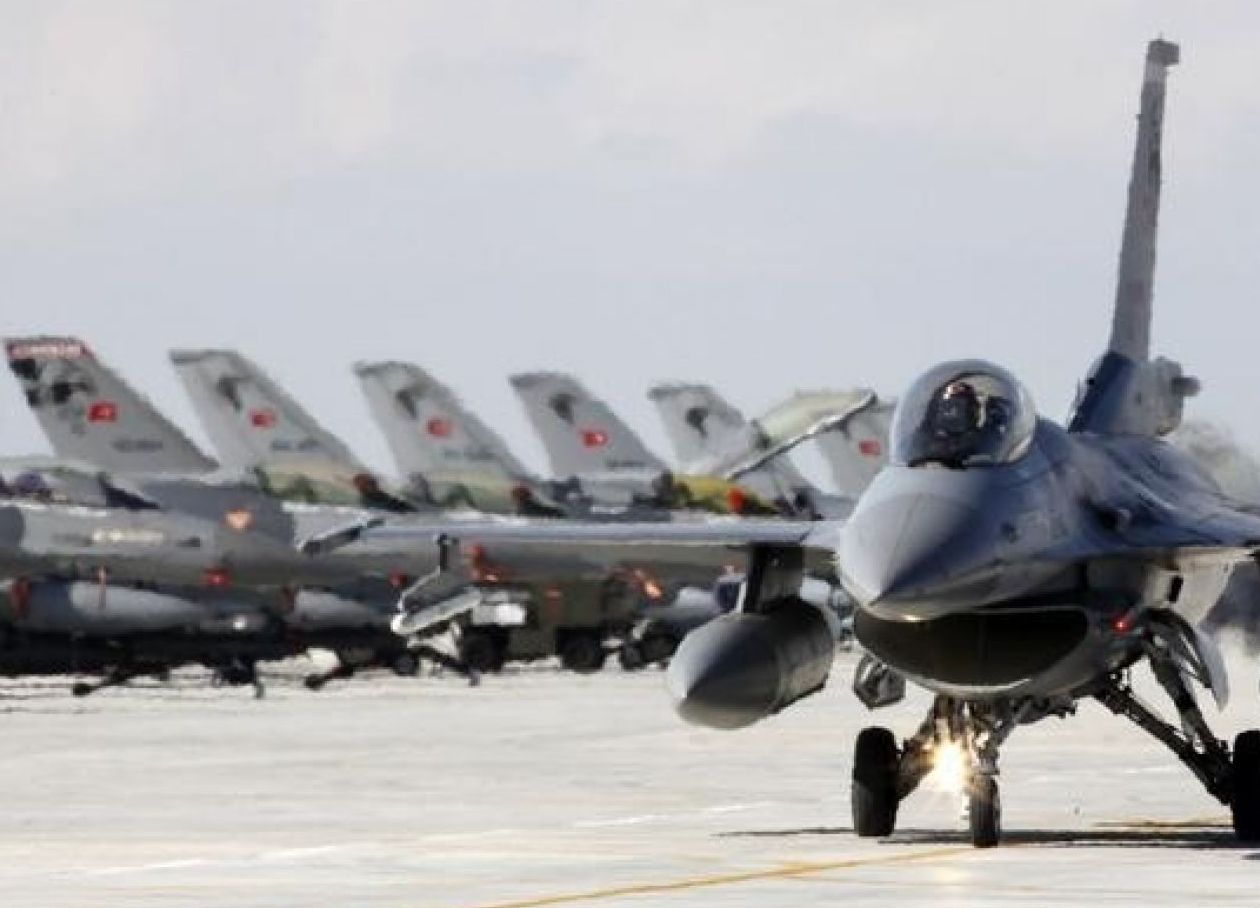Turkish forces crossed into northern Iraq to pursue Kurdish militants on Tuesday after the deadliest rebel attacks in years left dozens dead as the decades-long conflict escalated.
Thirteen Turkish police were killed on Tuesday in a new attack by Kurdistan Workers’ Party (PKK) militants as violence in the east threatened to spiral out of control.
That attack came two days after 16 Turkish soldiers were killed in a twin roadside bomb attack in Daglica in the southeastern Hakkari region, the army said, in the deadliest strike on troops in months.
Early on Tuesday, the Turkish air force pounded PKK targets in northern Iraq and special ground forces crossed the border in a rare land incursion, a Turkish government source told AFP.
“This is a short-term measure intended to prevent the terrorists’ escape,” he said, without saying when it began or how long it would last.
The Dogan news agency said two units of Turkish special forces, backed by warplanes, were chasing around 40 PKK militants in two groups.
‘Plague of terror’
Since late July, Ankara has used air power and ground troops in a bid to cripple the PKK in its strongholds in southeastern Turkey and northern Iraq.
But the group has hit back, killing dozens of Turkish police and soldiers in almost daily attacks, with the bloodier attacks marking a new intensification of the conflict.
The 13 police were killed in a bomb attack on a minibus the eastern region of Igdir, the governorate said, slightly revising down an earlier toll. They had been en route to the Dilucu post near the border with Azerbaijan when the attack took place.
A PKK spokesman in northern Iraq confirmed to AFP that the group carried out the attack.
Meanwhile, one policeman was killed in the Tunceli region of eastern Turkey in another attack blamed on the PKK, Turkish television said.
The violence has left in tatters a 2013 ceasefire aimed at allowing a final peace deal to end the PKK’s three-decade insurgency, which has claimed tens of thousands of lives.
The PKK initially took up arms in 1984 with the aim of establishing an independent state for Turkey’s Kurdish minority, although lately the demands have focused on greater autonomy and rights.
Commentators have expressed alarm that the current situation increasingly resembles the worst days of the PKKs insurgency in the 1990s when attacks on this scale were commonplace.
“We did not and will not abandon the nation’s future to three or five terrorists,” Turkish President Recep Tayyip Erdogan said in a defiant speech in Ankara.
But he promised that “with God’s permission, Turkey, which has overcome plenty of crises, will get over the plague of terror.”
Alarm over Cizre
In a scene that has become very familiar in recent weeks, Prime Minister Ahmet Davutoglu attended a funeral for soldiers killed in the Daglica attack.
“For the unity of this nation, this homeland, anyone responsible for each and every act of bloodshed will be brought to account,” he said, weeping openly.
The US embassy in Ankara condemned the Daglica attack, saying: “We stand with Turkey in the fight against terror and repeat our call to the PKK: renounce violence and return to the peace process.”
Pro-Kurdish MPs meanwhile expressed alarm over the situation in the mainly Kurdish southeastern city of Cizre in the restive Sirnak province, where residents were under an army curfew for a fifth day in a row.
Several people have been killed and others wounded including children while food is running short, pro-Kurdish media have reported.
“Martial law is being imposed in Cizre under the pretext of a curfew,” the Peoples’ Democratic Party (HDP) said in a statement, denouncing a “massacre” in the city.
The unrest comes at an explosive time in Turkey as the country prepares to hold snap elections on November 1 following June polls where Erdogan’s ruling party lost its overall majority as a pro-Kurdish party made a major breakthrough.
Meanwhile, the PKK released 20 Turkish citizens, including customs officials, kidnapped in August by the militants in the east of Turkey and then moved to Iraq.
The PKK handed them over to a delegation of rights activists, Iraqi Kurdistan officials and members of the (HDP) who travelled to Iraq, security sources in eastern Turkey told AFP.










